Stripping Suspects is Torture and it’s a Crime. Daily Law Tips (Tip 737) by Onyekachi Umah, Esq., LL.M, ACIArb(UK)
Introduction:
Across Nigeria, most persons (suspects) upon being arrested and detained are forced by the arresting officers to remove their clothes, belts, shoes, phones, wrist watches and other personal belongings. Most suspects are detained in police stations naked (barely wearing a short/pant, if any). Where a suspect is fortunate, he is offered his own trousers but to wear it inside-out.

As a practicing attorney, my first visit to a police station in Nigeria was horrifying, mere suspects were paraded like mad people by police officers, who maltreated and ordered the suspects like slaves. This is the norm across most detention centers and law enforcement agencies. One wonders if having naked suspects is part of the training and operational protocol of law enforcement agencies in Nigeria. This work examines the legality of stripping suspects naked by law enforcement agents and the punishments for such in Nigeria.
Nakedness is Lawlessness:
From the Constitution of Nigeria to all the laws and regulations in Nigeria, there is no justification for stripping any person or suspect naked. Not even a convicted murderer is permitted to be stripped naked, not to talk of mere suspects, that have not even been found guilty of any wrong.
The parts of the body of a person is private to the owner of the body. Clothing them is the choice and right of the owner of the body. As such forcefully unclothing any person is a violation of privacy. Privacy and private life are protected in Nigeria as fundamental human rights and as such stripping any person naked is a violation of fundamental human right. It violates the “Right to Private and Family Life”. Also, being clothed is part of being human and forcefully removing clothes is dehumanizing and torturing. It is a violation of another fundamental human rights; “Right to Dignity of Human Persons”. Any victim of violation of human rights may approach a High Court and will be duly compensated.
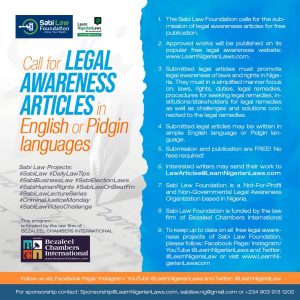
On 20th December 2017, the National Assembly (federal legislature) enacted a federal law (Anti-Torture Act) that further criminalized all forms of torture. The said law was signed into law by President Muhammed Buhari. It clearly listed “stripping naked” as a torture and created punishment for any law enforcement agent that stripes any person naked. It also created punishments for heads of units/departments, where a person was stripped naked as well as for any officer that watches such acts. By the federal law, the punishment for stripping any person naked (or any other form of torture) is imprisonment for not more than 25 years, without an option of fine.
Torture includes; beatings, food deprivation, rubbing of pepper/chemicals, assuming of stressful bodily positions, rape, exposure to cold/sunlight, use of drugs, blindfolding, threat, prolonged interrogation, unscheduled transfer of persons, secret detention, denial of sleep, shaming, stripping naked and parading in public places.
Police torture is a crime, irrespective of the alleged offence of the victim of torture. There is no justification for torture, not even war, national security or high-profile case. Every police torture and torture by a law enforcement officer is a violation of fundamental human right. Where there is torture in any security agency, the immediate commanding officer in-charge of the unit/department that committed such offence of torture will be held liable as an accessory to the crime, for any act or omission or negligence on his part that may have led to the commission of torture by his subordinates/colleagues. Any person that witnesses or is present when torture is being conducted is as liable as the person that conducted the torture.
Conclusion:
There is no justification for stripping any person naked. It is barbaric and dehumanizing. Any operational protocol or rules of engagement of any law enforcement agency that allows stripping suspects naked is unlawful, illegal and a violation of the constitution of Nigeria. That an officer was merely obeying commands from superior officer is not an excuse for stripping naked or any form of torture.

The argument that stripping suspects naked is necessary, to avoid possession of weapons or drugs is not a justification for violation of any human right. In this century, there are better ways of policing and managing suspects. You cannot curb crime by violation of human rights. Although human rights are not absolute, since there can be suspended, there are constitutionally approved circumstances and procedures for such suspension.
If a person is to be stripped naked, it can only be done with a valid order of a court of law and not on the order of any other person, institution or law enforcement agent. Where torture leads to death, the violator will be tried for murder. The punishment for murder is death. Also, with internal disciplinary measures, the offending law enforcement officer should lose his/her job too.
At all times, law enforcement agencies are liable for the conducts of their law enforcement agents. Feel free to sue any offending police officer/law enforcement agent as well as the offending law enforcement agency. Seeking for justice is a right; a fundamental right to fair hearing.
My authorities, are:
- Section 1, 2, 3, 4, 5, 6, 33, 34, 37, 39, 40, 41, 318 and 319 of the Constitution of the Federal Republic of Nigeria, 1999.
- Sections 1, 2, 3, 4, and 5 of the Police Act, 2020
- Sections 2, 3, 7, 8 and 13 of the Anti-Torture Act, 2017
- Sections 1, 2, 3, 4, 69, 70, 71 and 72 of the Criminal Code Act, 1916.
- Sections 1, 3, 4, 5, 100, 105, 106 of the Penal Code Act, 1960
- Sections 1, 2, 3, 7, 9 and 10 of the Riot (Damages) Act, 1963.
- Sections 1, 2, 3, 4, 10, 18, 19 and 20 of the Riot Damage Act, 1958.
- The judgment of the Supreme Court of Nigeria (on meaning and nature of fundamental human rights) in the case of RANSOME-KUTI & ORS v. AG FEDERATION & ORS (1985) LPELR-2940(SC)
- The judgment of the Supreme Court of Nigeria (on meaning and nature of fundamental human rights) in the case of AGBAI & ORS v. OKOGBUE (1991) LPELR-225(SC).
- The judgment of the Supreme Court of Nigeria (on when and why fundamental human rights can be restricted/suspended) in the case of DOKUBO-ASARI v. FRN (2007) LPELR-958(SC).
- The Judgement of the Court of Appeal of Nigeria (on the Unconstitutionality of the Public Order Act) in the case of Inspector-General of Police v. All Nigeria Peoples’ Party (2008) WRN 65
- The Judgement of the Federal High Court of Nigeria (on the Unconstitutionality of the Public Order Act) in the case of All Nigeria Peoples Party & Ors. v. Inspector General of Police (2006) CHR 181
- Judgment of the Supreme Court of Ghana (on that no permit or license is needed for protests) in the case of of New Patriotic Party v. Inspector-General of Police, Accra (1992-1995) GBR 585.
- Onyekachi Umah, “Can Police Punish Unlawful Protesters?” (LearnNigerianLaws.com, 15 February 2021) <https://sabilaw.org/can-police-punish-unlawful-protesters/> accessed 16 February 2021.
- Onyekachi Umah, “When Can A Protest Become A Riot?” (LearnNigerianLaws.com, 6 November 2020) <https://sabilaw.org/when-can-a-protest-become-a-riot/> 15 February 2021.
- Onyekachi Umah, “#EndSarsNow: Punishment For Police (SARS) Torture” (LearnNigerianLaws.com, 6 October 2020) <https://sabilaw.org/endsarsnow-punishment-for-police-sars-torture/> accessed 15 February 2021.
- Onyekachi Umah, “#EndSarsNow: Nigeria Police Lacks Power To Punish” (LearnNigerianLaws.com, 7 October 2020) <https://sabilaw.org/endsarsnow-nigeria-police-lacks-power-to-punish/> accessed 15 February 2021.
- Onyekachi Umah, “#EndPoliceBrutality: How To Sue the Nigeria Police Force and Police Officers” (LearnNigerianLaws.com, 14 October 2020) <https://sabilaw.org/endpolicebrutality-how-to-sue-the-nigeria-police-force-and-police-officers/> accessed 15 February 2021.
- “Demand justice for Police Brutality in Nigeria” (Amnesty International) <https://www.amnesty.org/en/get-involved/take-action/nigeria-end-impunity-for-police-brutality-end-sars/> accessed 15 February 2021.
- Onyekachi Umah, “Who Can Be Lawfully Killed In Nigeria?” (LearnNigerianLaws.com, 26 October 2020) <https://sabilaw.org/who-can-be-lawfully-killed-in-nigeria/ > accessed 3 November 2020.
- Femi Falana, “Police Permit Not Required For Rallies in Nigeria” (Premium Times, 23 January 2014) <https://www.premiumtimesng.com/opinion/153860-police-permit-required-rallies-nigeria.html> accessed 14 October 2020.
- Onyekachi Umah, “Can A Person With A Nigerian Flag Be Shot Or Killed?” (LearnNigerianLaws.com,23 October 2020) <https://sabilaw.org/can-a-person-with-a-nigerian-flag-be-shot-or-killed/ > accessed 3 November 2020
- Onyekachi Umah, “#EndPoliceBrutality: When & How Can Government Prohibit Protest In Nigeria?” (LearnNigerianLaws.com, 19 October 2020) <https://sabilaw.org/when-and-how-can-government-prohibit-protest-in-nigeria/ > accessed 3 November 2020.
- Onyekachi Umah, “#EndPoliceBrutality: The Right To Protest Is A Human Right.” (LearnNigerianLaws.com, 15 October 2020) <https://sabilaw.org/endpolicebrutality-the-right-to-protest-is-a-human-right/ > accessed 3 November 2020.
- Onyekachi Umah, “#EndPoliceBrutality: Do You Need A Police Permit To Protest?” (LearnNigerianLaws.com, 16 October 2020) <https://sabilaw.org/endpolicebrutality-do-you-need-a-police-permit-to-protest/> accessed 3 November 2020.
- October 2020. 1 Onyekachi Umah, “Does The President/Governors Have Powers To Lockdown Any Part Of Nigeria Or Restrict Human Rights?” (Daily Law Tips [Tip 537]) <https://sabilaw.org/does-the-president-governors-have-powers-to-lockdown-any-part-of-nigeria-or-restrict-human-rights-daily-law-tips-tip-537-by-onyekachi-umah-esq-llm-aciarbuk/ > accessed 18 October 2020.
- Onyekachi Umah, “Human Rights That Can Never Be Restricted Even In War, Pandemic or State of Emergency (Daily Law Tips [Tip 539]) <https://sabilaw.org/human-rights-that-can-never-be-restricted-even-in-war-pandemic-or-state-of-emergency-daily-law-tips-tip-539-by-onyekachi-umah-esq-llm-aciarbuk/> accessed 18 October 2020
- Onyekachi Umah, “Duty of Government to Pay Compensation for Damages Caused By Riot.” (LearnNigerianLaws.com, 4 November 2020) <https://sabilaw.org/duty-of-government-to-pay-compensation-for-damages-caused-by-riot/> accessed 15 February 2021.
- Onyekachi Umah, “Who Pays For Properties Damaged or Lost In A Riot In Nigeria” (LearnNigerianLaws.com, 6 August 2018) <https://sabilaw.org/daily-law-tips-by-onyekachi-umah-esq-tip-157-who-pays-for-properties-damaged-or-lost-in-a-riot-in-nigeria/ > accessed 3 November 2020.
- Onyekachi Umah, “List of Fundamental Human Rights In Nigeria.” (LearnNigerianLaws.com, 22 October 2020) <https://sabilaw.org/list-of-fundamental-human-rights-in-nigeria/> accessed 15 February 2021.
- Onyekachi Umah, “Does The President/Governors Have Powers To Lockdown Any Part Of Nigeria Or Restrict Human Rights?” (Daily Law Tips [Tip 537]) <https://sabilaw.org/does-the-president-governors-have-powers-to-lockdown-any-part-of-nigeria-or-restrict-human-rights-daily-law-tips-tip-537-by-onyekachi-umah-esq-llm-aciarbuk/ > accessed 18 October 2020.
- Chris Admin, “Onyekachi Umah Speaks To ChannelsTv On SARS & The New Police Act” (LearnNigerianLaws.com, 9 November 2020) <https://sabilaw.org/onyekachi-umah-speaks-to-channelstv-on-sars-the-new-police-act/> accessed 15 February 2021.
- Onyekachi Umah, “What Is The Punishment For Any Person Including Police Officers That Tortures Another Person” (LearnNigerianLaws.com, 18 December 2018) <https://sabilaw.org/daily-law-tips-by-onyekachi-umah-esq-tip-251-what-is-the-punishment-for-any-person-including-police-officers-that-tortures-another-person/> accessed 15 February 2021.
- Onyekachi Umah, “Is Obeying “Orders From Above” a Defence for Torture in Nigeria” (LearnNIgerianLaws.com, 7 September 2019) <https://sabilaw.org/is-obeying-orders-from-above-a-defence-for-torture-in-nigeria-daily-law-tips-tip-409-by-onyekachi-umah-esq-llm-aciarb-uk/> accessed 15 February 2021.
- Onyekachi Umah, “Being Present During Torture Without Participating In It, Is A Crime” (LearnNigerianLaws.com, 25 November 2019) <https://sabilaw.org/being-present-during-torture-without-participating-in-it-is-a-crime-daily-law-tips-tip-464-by-onyekachi-umah-esq-llm-aciarb-uk/> accessed 15 February 2021.
- Onyekachi Umah, “New Punishment for Security Officers Involved in Torture in Nigeria.” (LearnNigerianLaws.com, 27 August 2017) <https://sabilaw.org/new-punishment-for-security-officers-involved-in-torture-in-nigeria-daily-law-tips-tip-401-by-onyekachi-umah-esq-llm-aciarb-uk/> accessed 15 February 2021.
- Onyekachi Umah, “Watching Torture but not Participating in it, is Torture.” (LearnNigerianLaws.com, 19 November 2019) <https://sabilaw.org/watching-torture-but-not-participating-in-it-is-torture-daily-law-tips-tip-460-by-onyekachi-umah-esq-llm-aciarb-uk/> accessed 15 February 2021.
- Onyekachi Umah, “Any Security Agency’s Manual/Protocol that Allows Torture Even for National Security Cases is Unlawful and its Officers are Liable.” (LearnNigerianLaws.com, 11 September 2019) <https://sabilaw.org/any-security-agency-s-manual-protocol-that-allows-torture-even-for-national-security-cases-is-unlawful-and-its-officers-are-liable-daily-law-tips-tip-412-by-onyekachi-umah-esq-llm-aciarb-uk/> accessed 15 February 2021
- Direct access to previous works on Torture in Nigeria <https://sabilaw.org/?s=torture+>
- Direct access to previous works on Nigeria Police Force <https://sabilaw.org/?s=police+>
- Pic credit: https://www.google.com/amp/s/punchng.com/police-kill-one-arrest-six-calabar-bank-robbery/%3famp=1
Sabi Law Projects:
#SabiLaw
#DailyLawTips
#SabiBusinessLaw
#SabiElectionLaws
#SabiHumanRignts
#SabiLawOnBeatFm
#SabiLawLectureSeries
#CriminalJusticeMonday
#SabiLawVideoChallenge
Speak with the writer, ask questions or make inquiries on this topic or any other via onyekachi.umah@gmail.com, info@LearnNigerianLaws.com or +2348037665878 (whatsapp).
To receive free Daily Law Tips, join our free Telegram group, via this link: https://t.me/LearnNigerianLaws
To keep up to date on all our free legal awareness projects of Sabi Law Foundation, follow us via
Facebook Page:@LearnNigerianLaws, Instagram: @LearnNigerianLaws, Twitter: @LearnNigeriaLaw and YouTube: Learn Nigerian Laws
Please share this publication for free till it gets to those that need it most. Save a Nigerian today! NOTE: Sharing, modifying or publishing this publication without giving credit to the author or Sabi Law Foundation is a criminal breach of copyright and will be prosecuted. This publication is the writer’s view not a legal advice and does not create any form of relationship. You may reach the writer for more information.
This publication is powered by www.LearnNigerianLaws.com {A Free Law Awareness Program of Sabi Law Foundation, supported by the law firm of Bezaleel Chambers International (BCI).} Sabi Law Foundation is a Not-For-Profit and Non-Governmental Legal Awareness Organization based in Nigeria.












































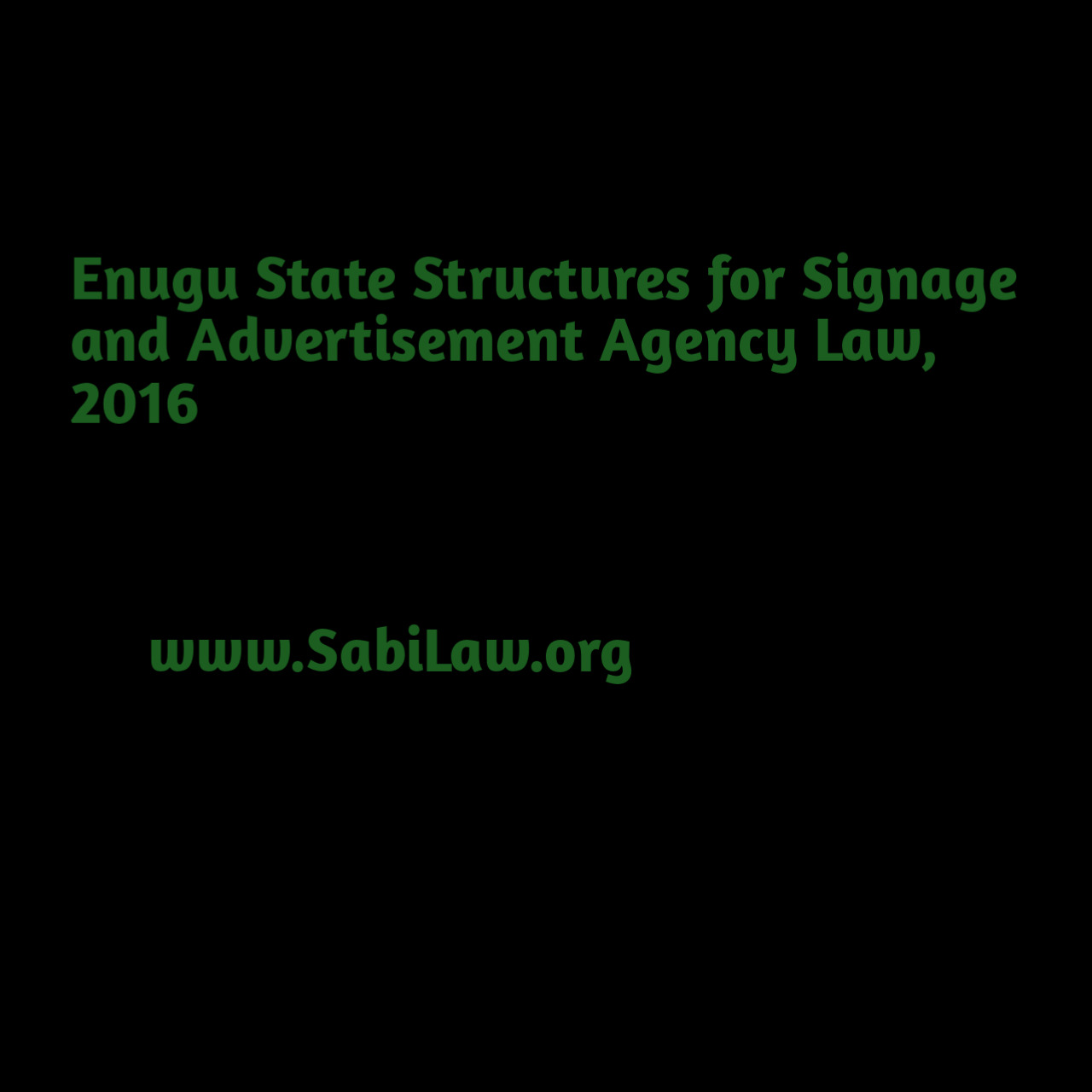
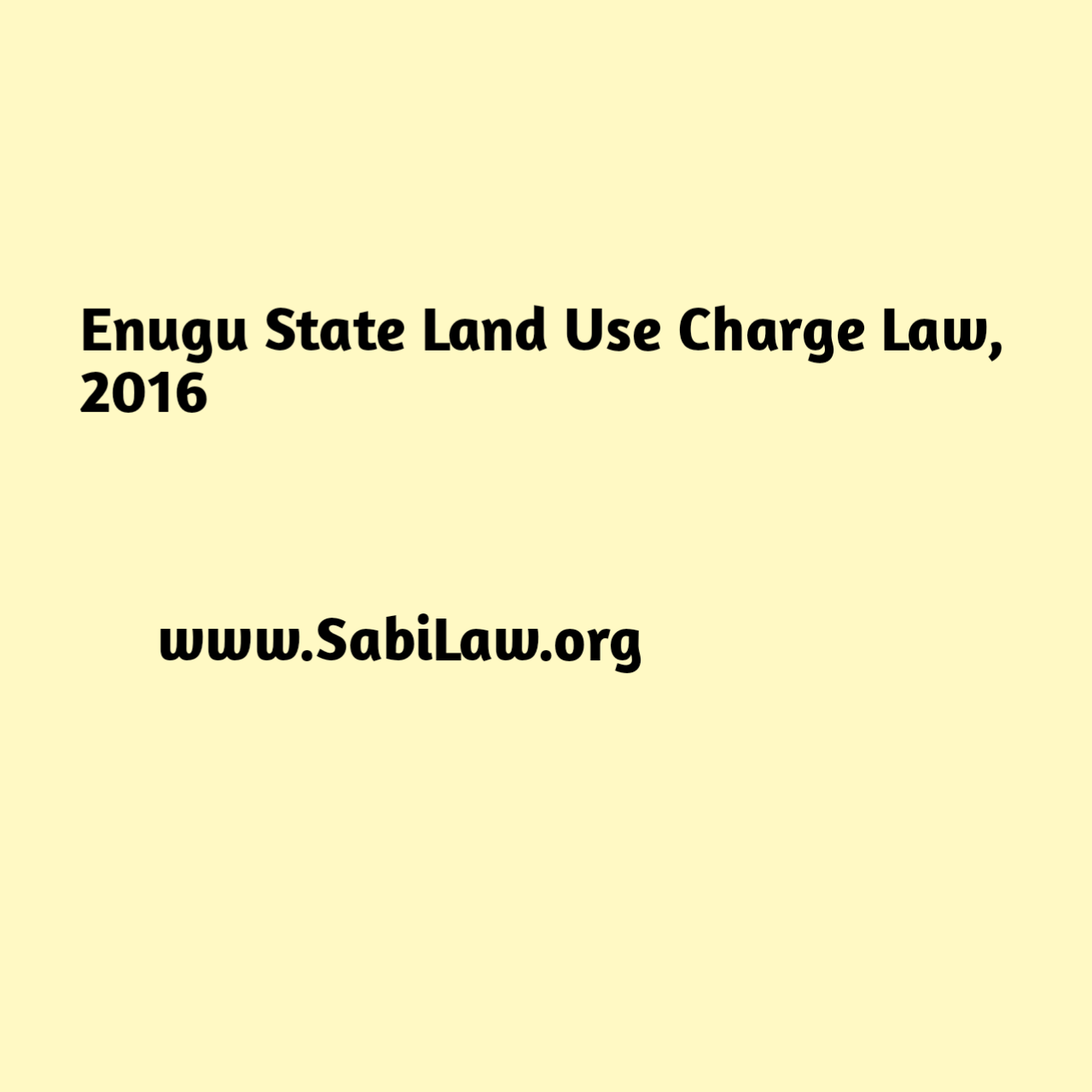
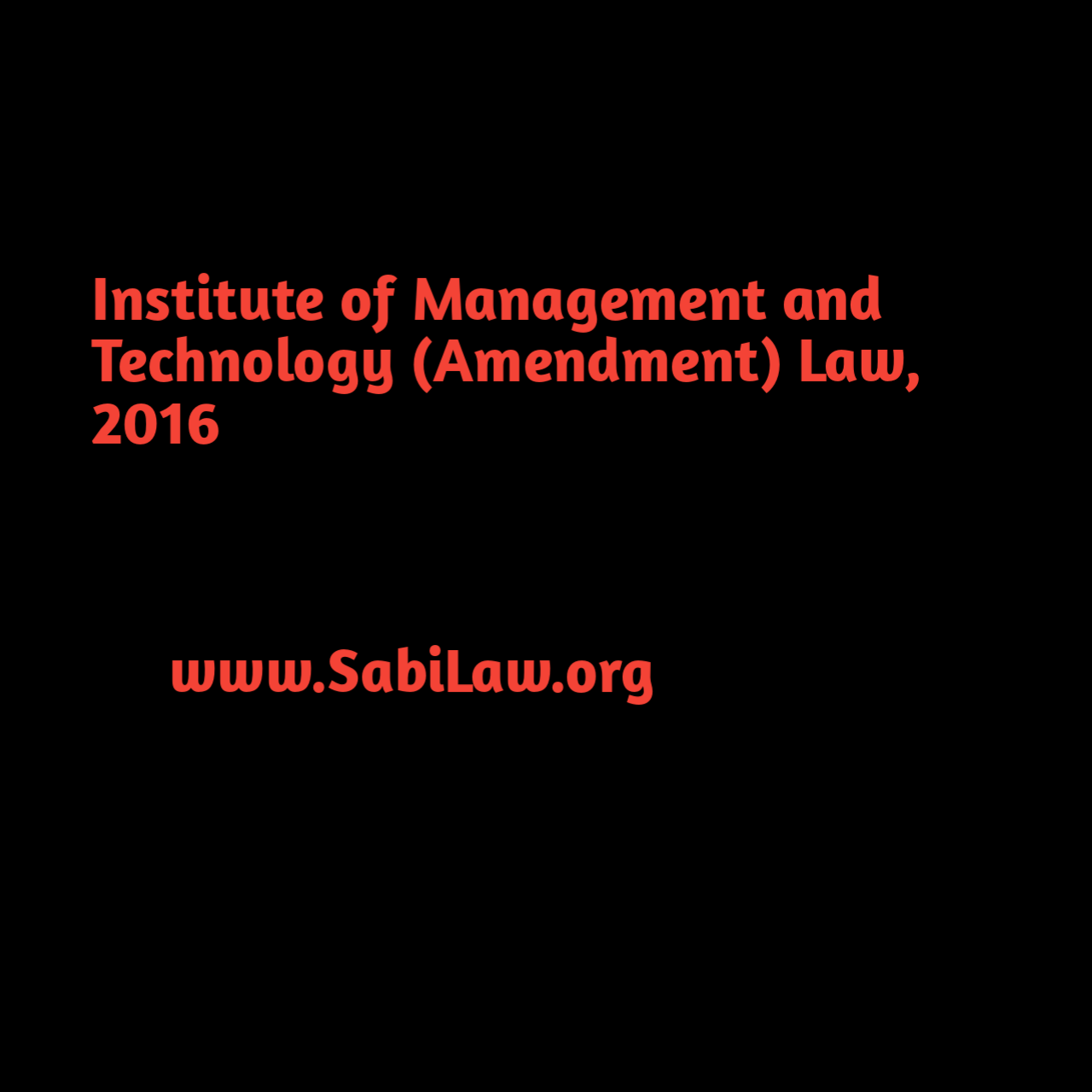
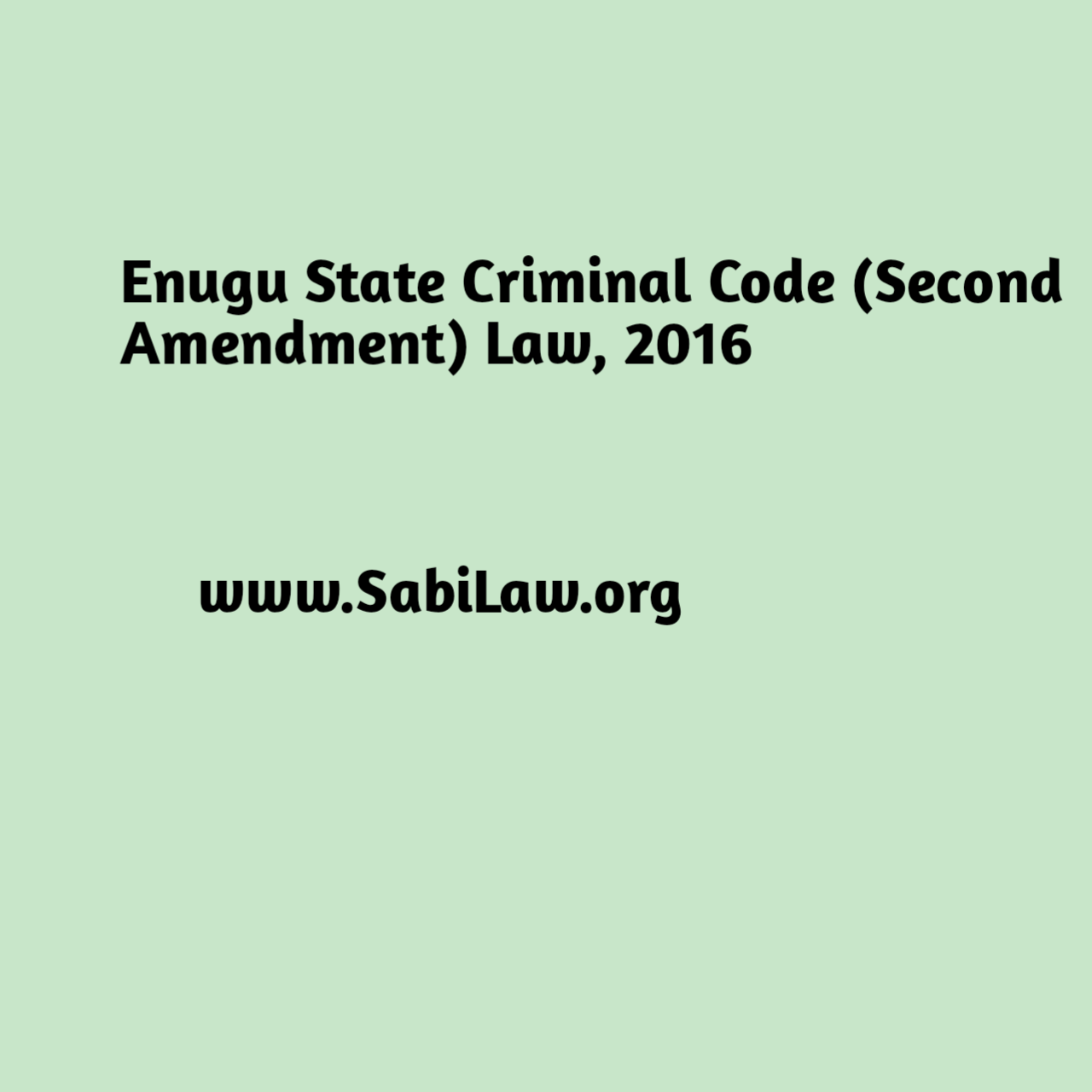
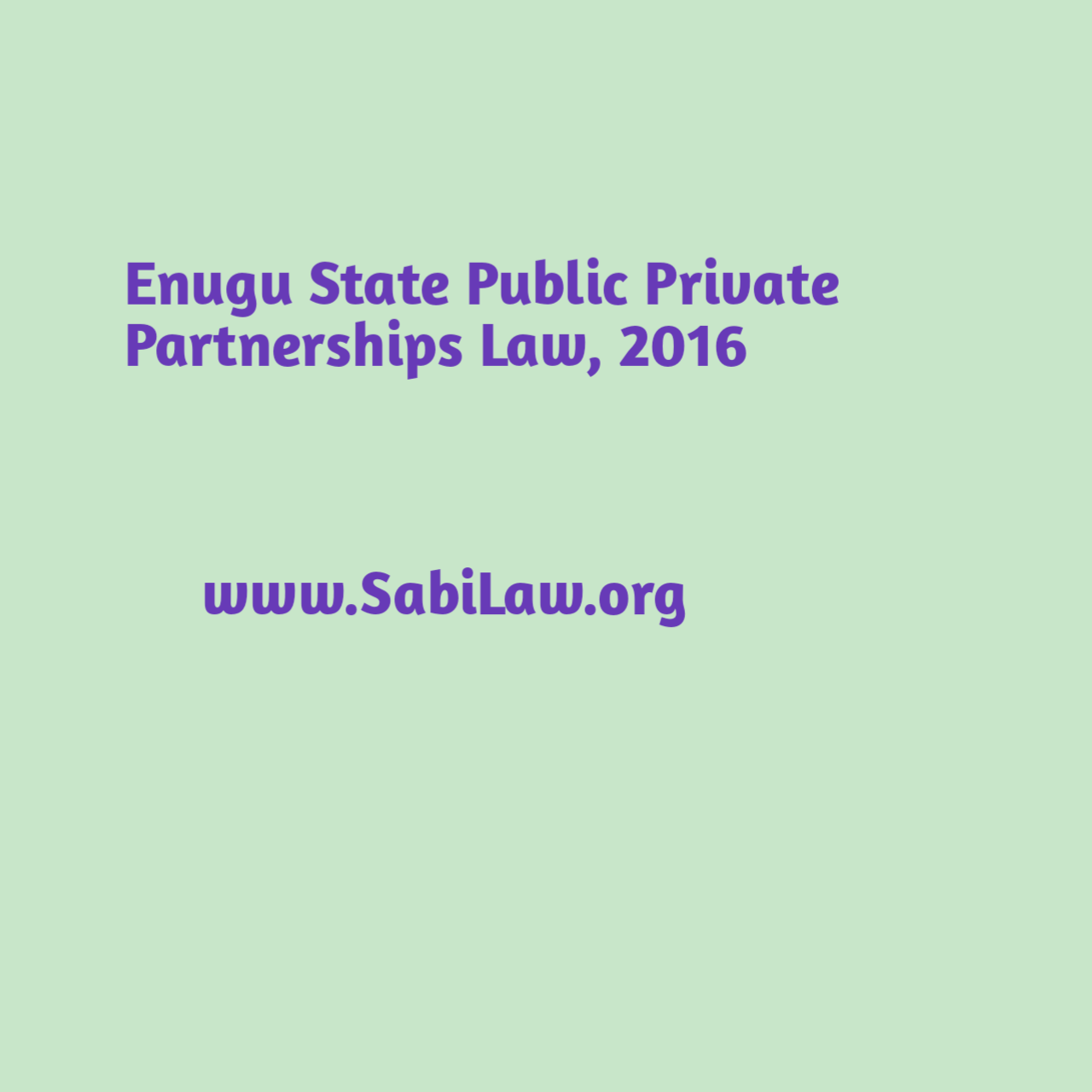
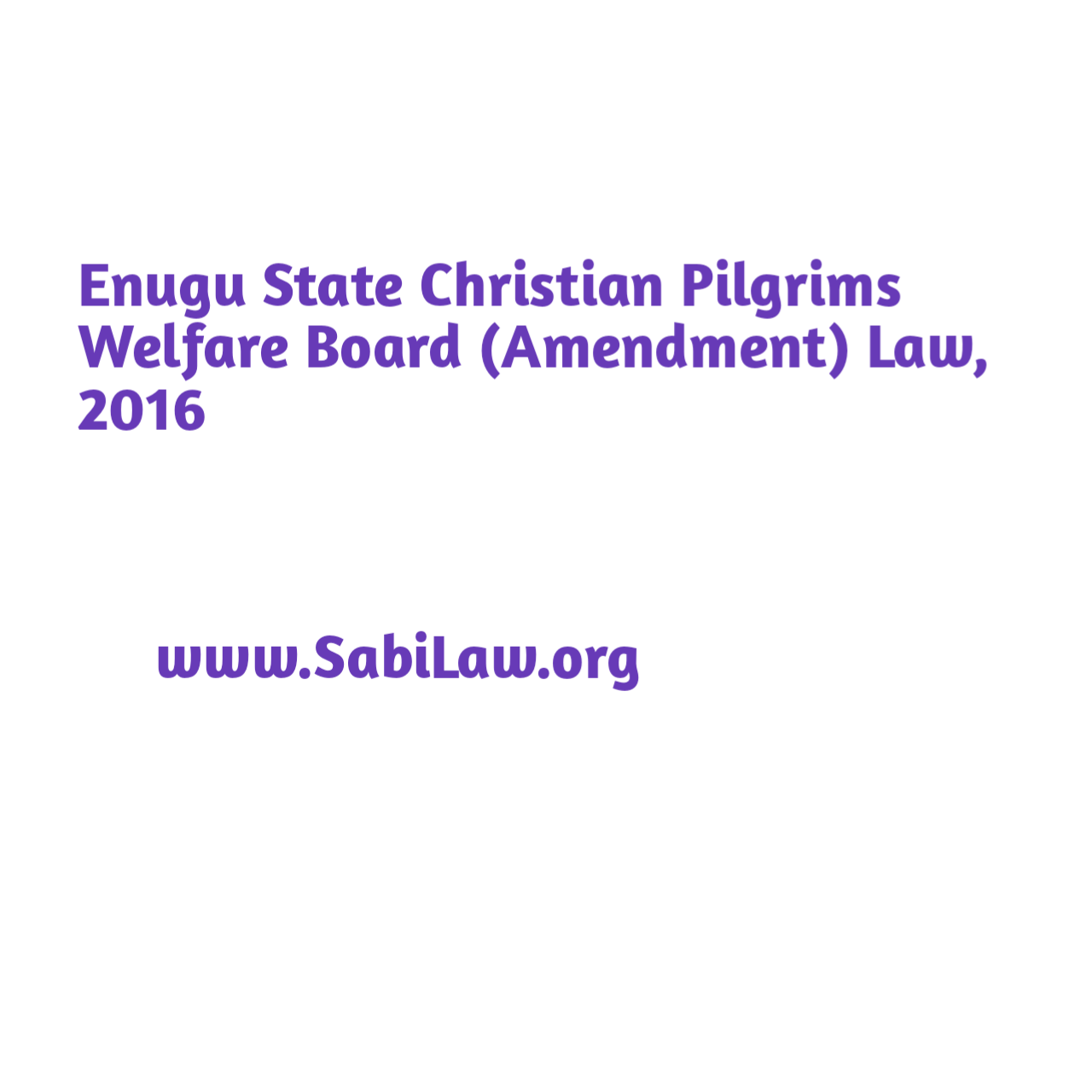
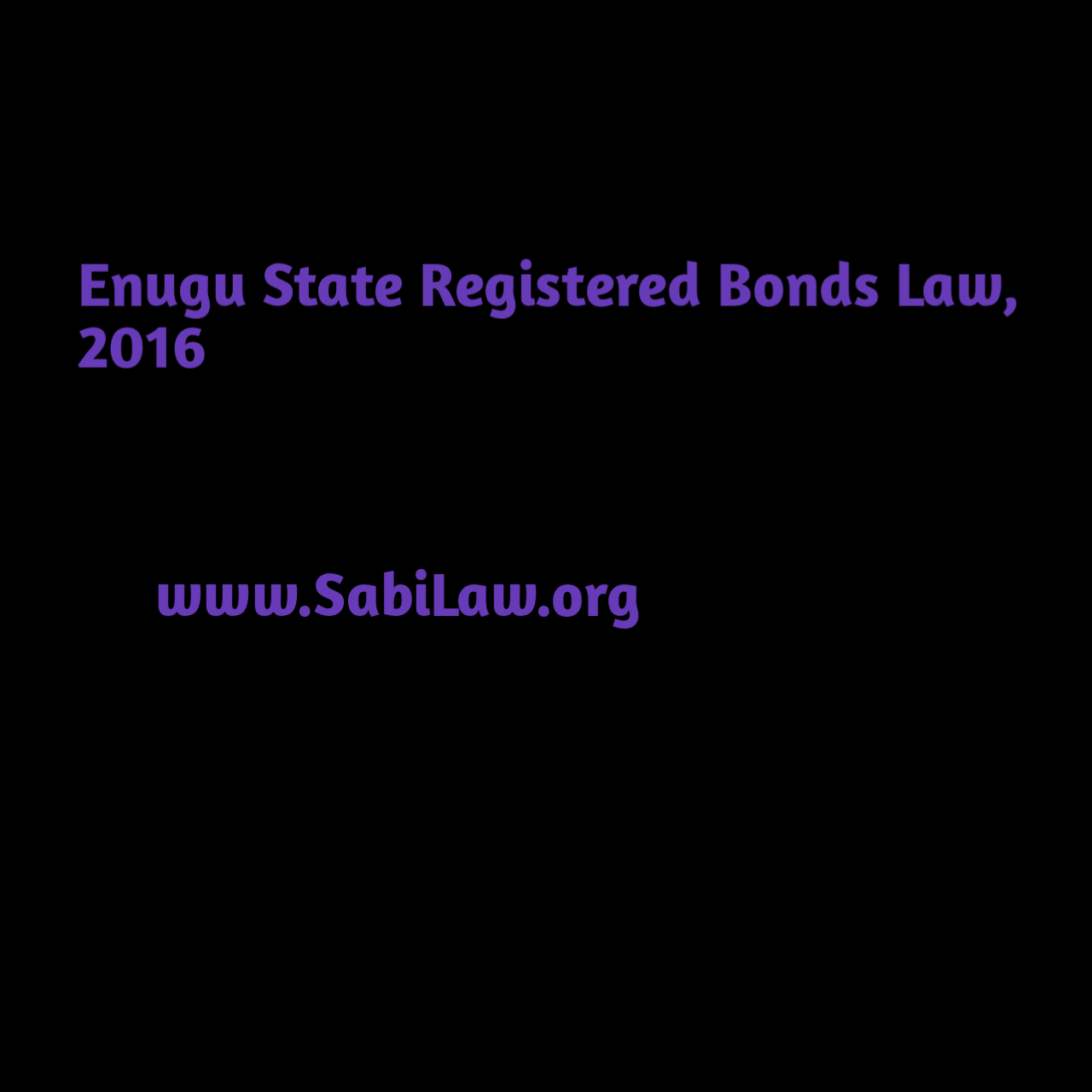
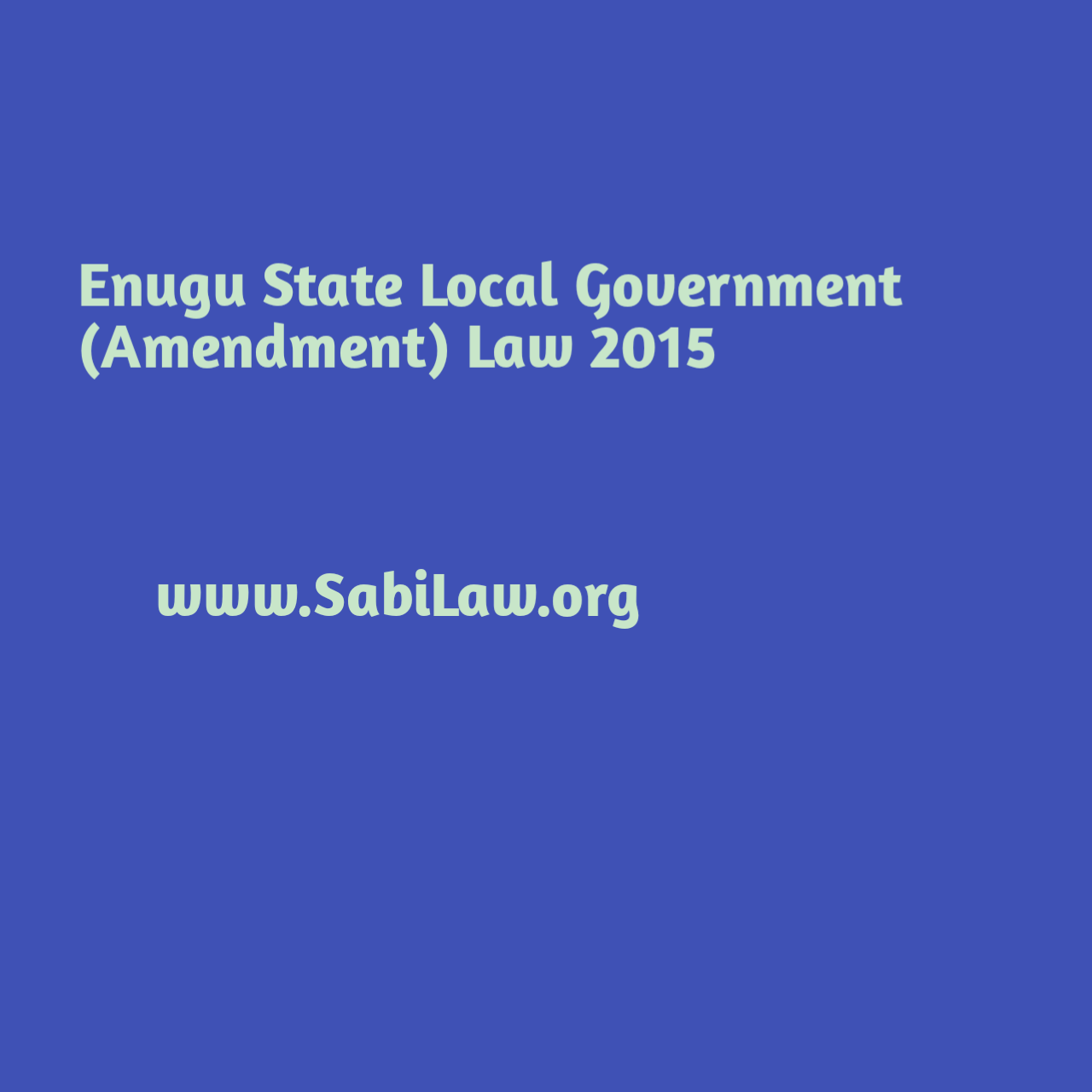
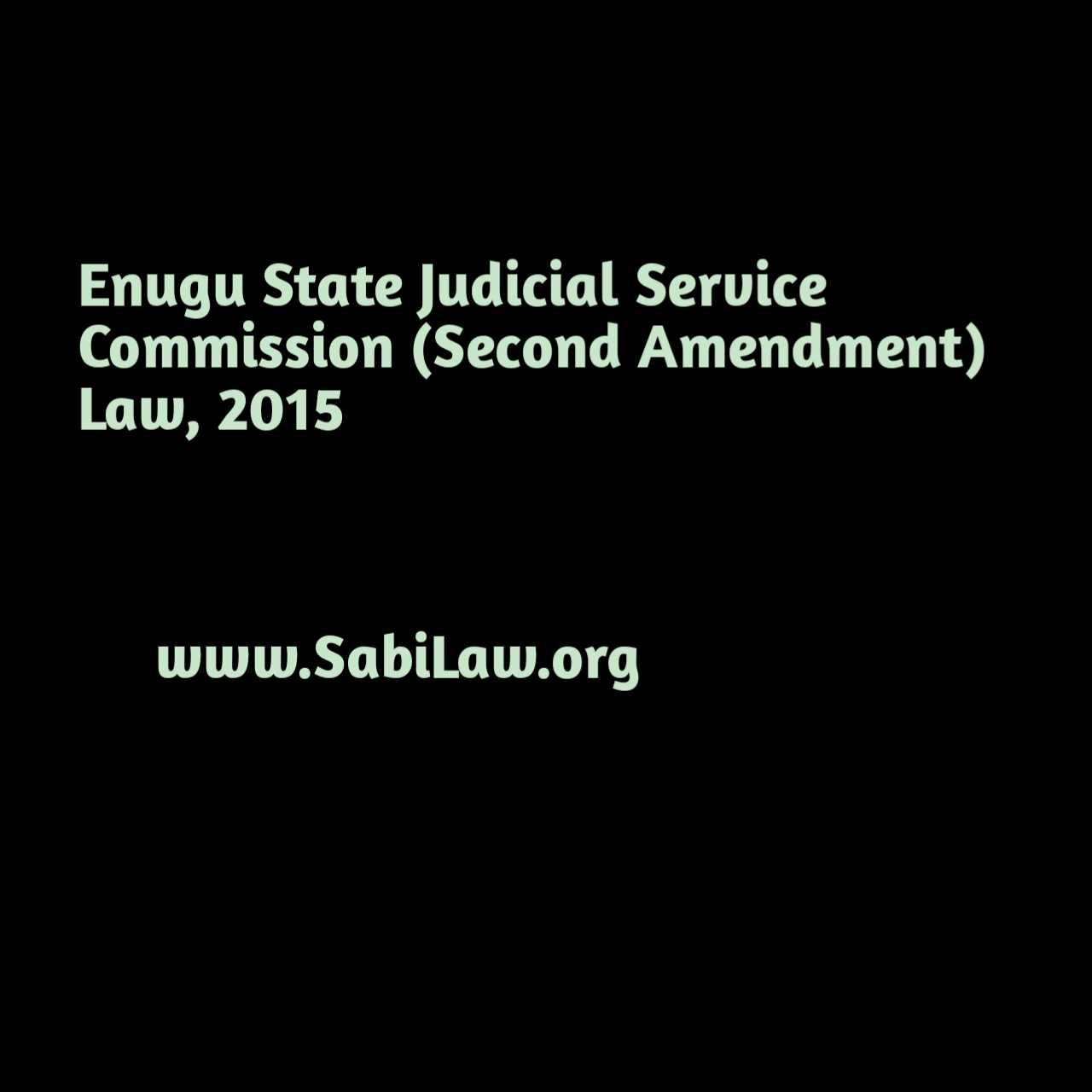
5 Responses